Canadian Academy: Indigenization and Reconciliation Essay
VerifiedAdded on 2022/09/12
|5
|725
|14
Essay
AI Summary
This essay explores the complexities of Indigenization and Reconciliation within the Canadian Academy, prompted by the Truth and Reconciliation Commission of Canada's calls to action. The author examines the struggles faced by institutions in implementing reconciliation, highlighting the importance of understanding the historical context of the relationship between Canada and Indigenous peoples. The essay analyzes three articles focusing on the inclusion of Indigenous peoples in academics, the impact of residential schools, and mental wellness within Indigenous communities. The first article discusses the importance of education and reconciliation through different paradigms like Indigenous Inclusion, Reconciliation Indigenization and de-colonial indigenization. The second article emphasizes the need for educational provisions and reconciliation, while the third article addresses the mental health challenges faced by Indigenous communities. The essay underscores the ongoing efforts to address historical injustices and promote a more inclusive academic environment, referencing the challenges in implementing these changes effectively.
1 out of 5
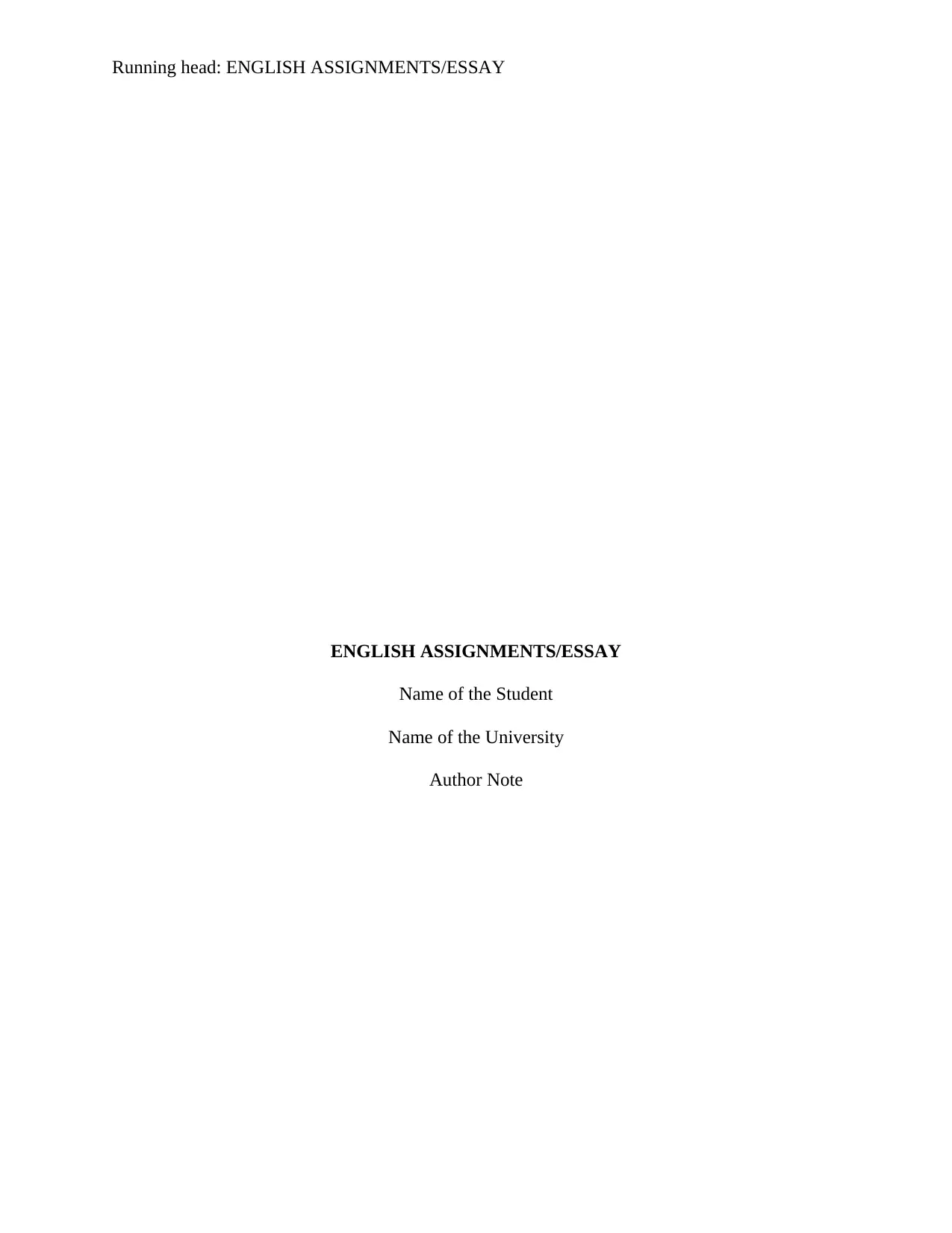
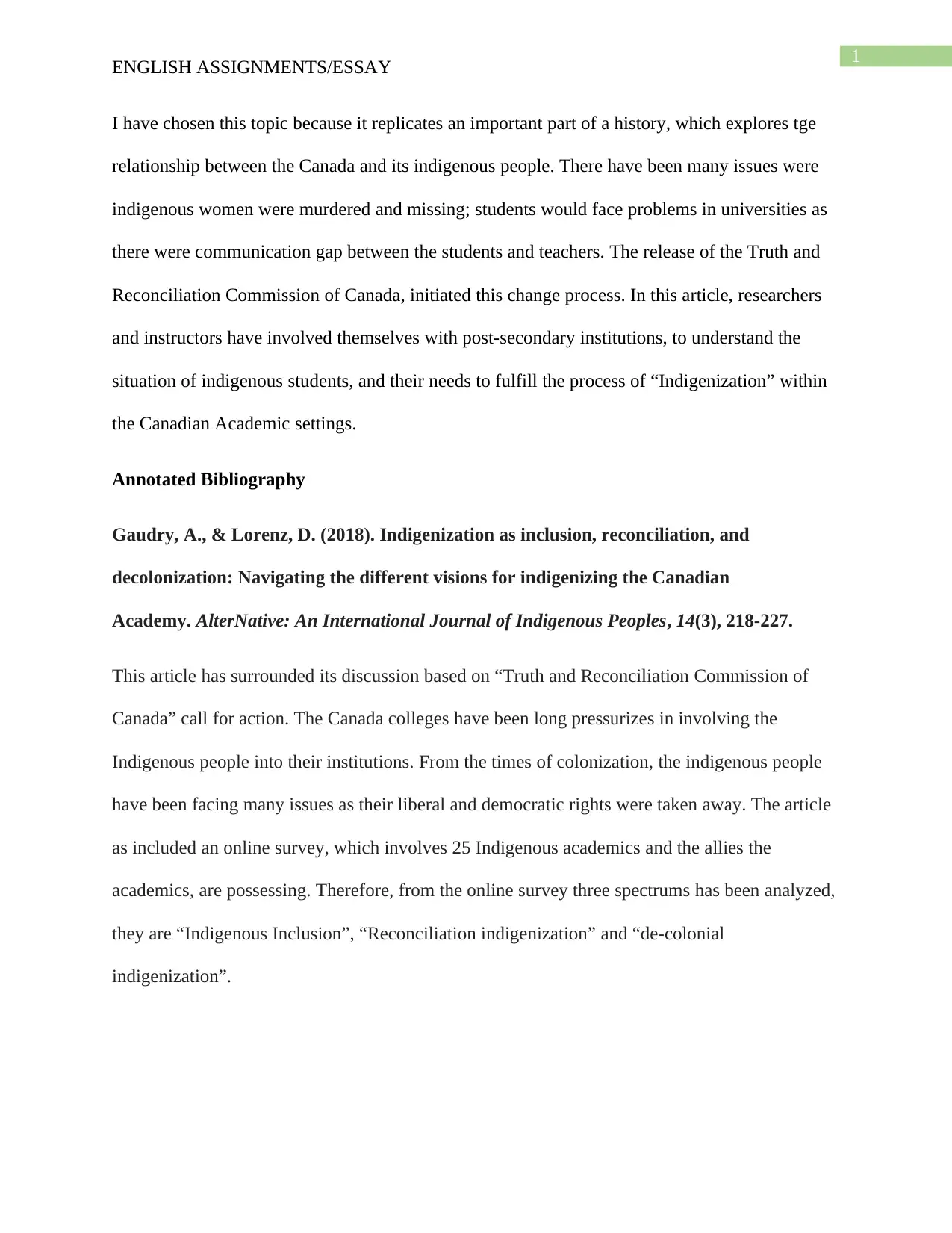
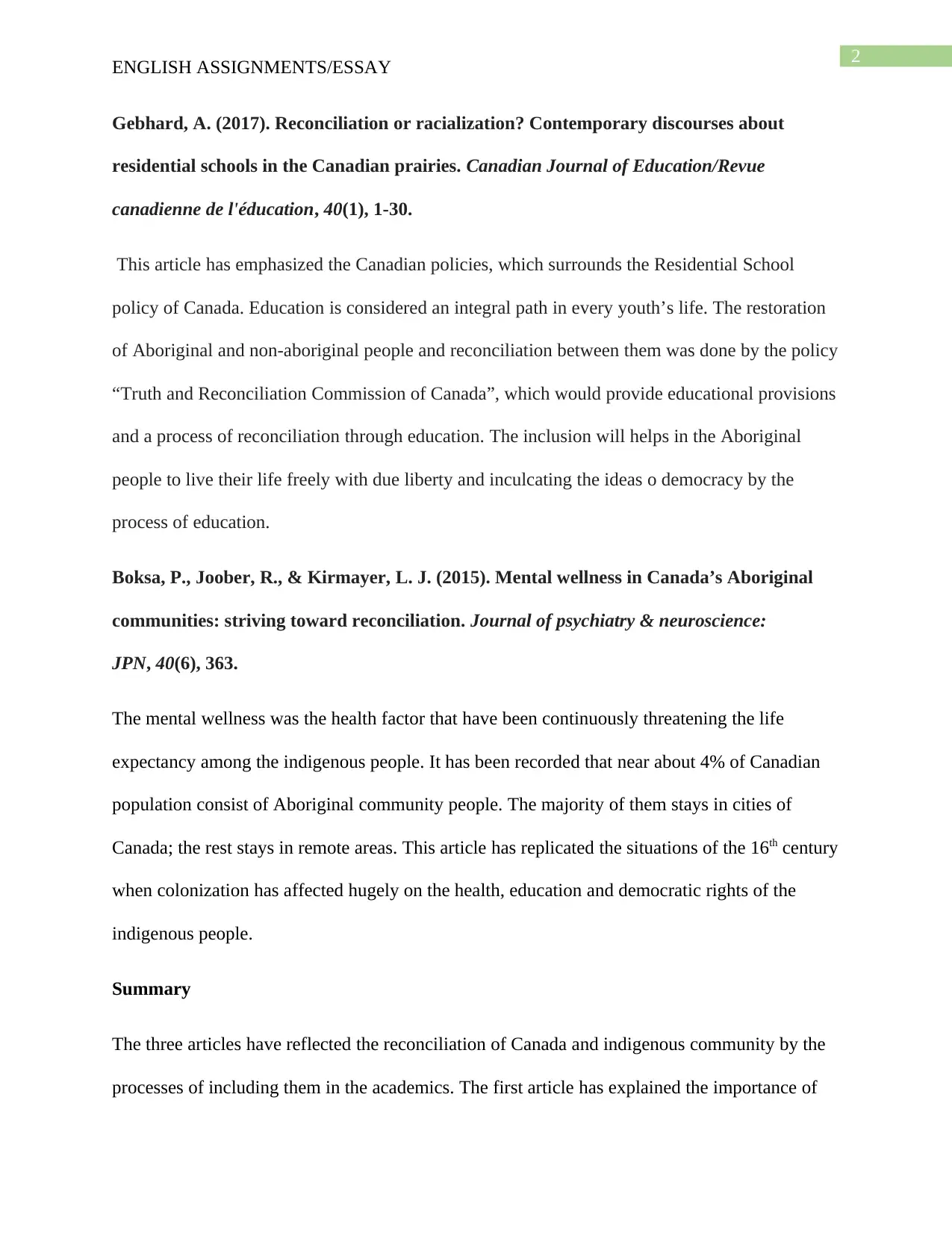

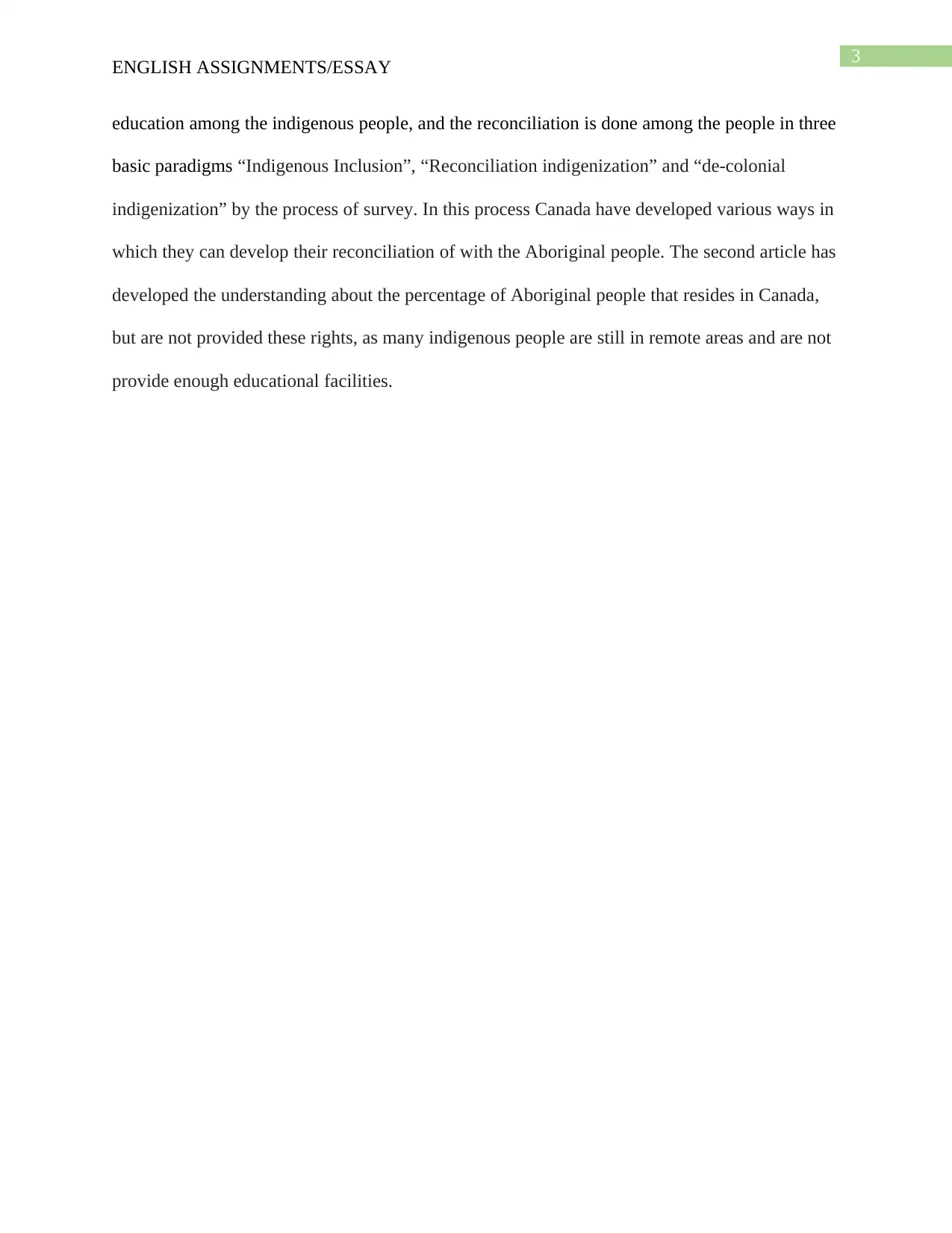
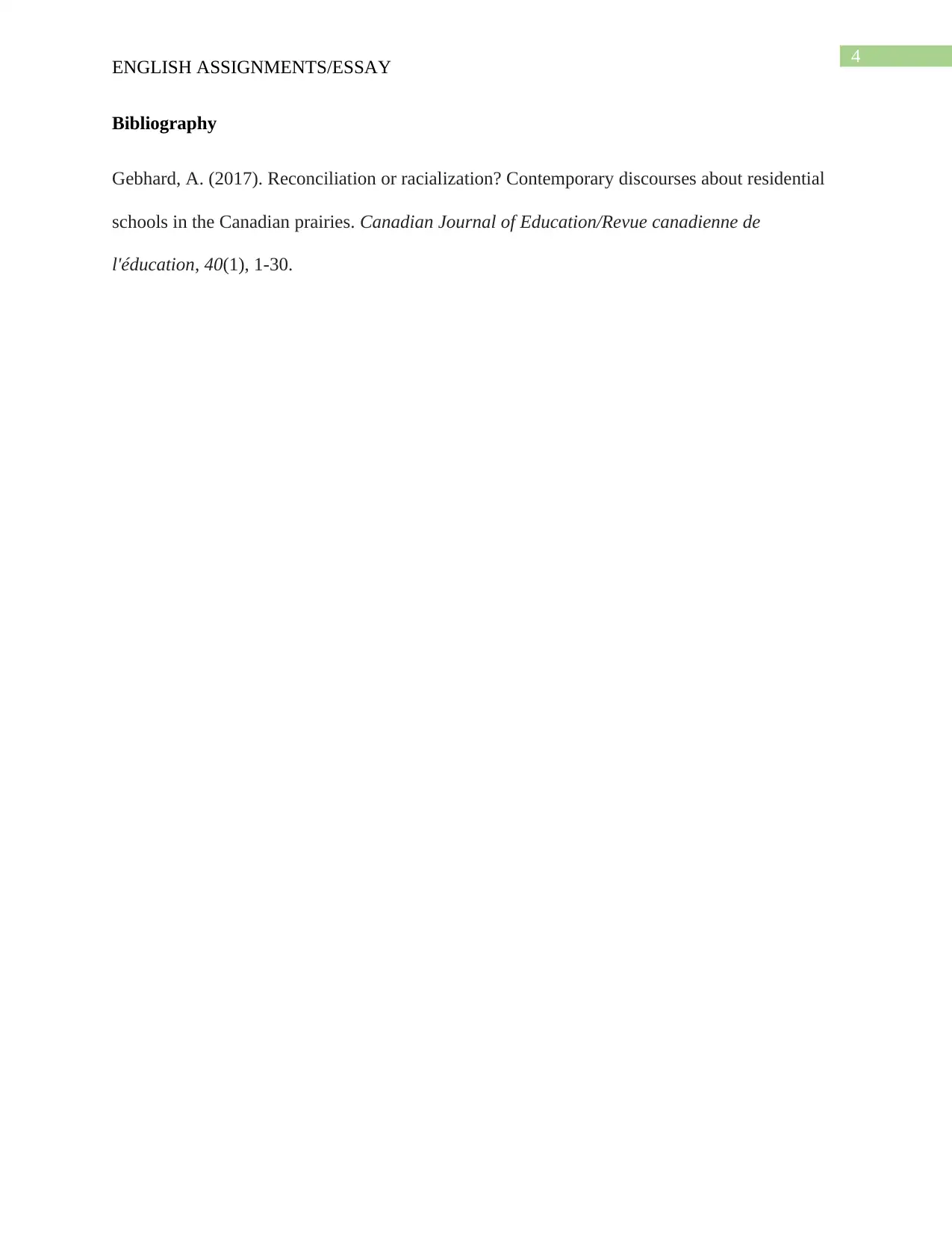






![[object Object]](/_next/static/media/star-bottom.7253800d.svg)